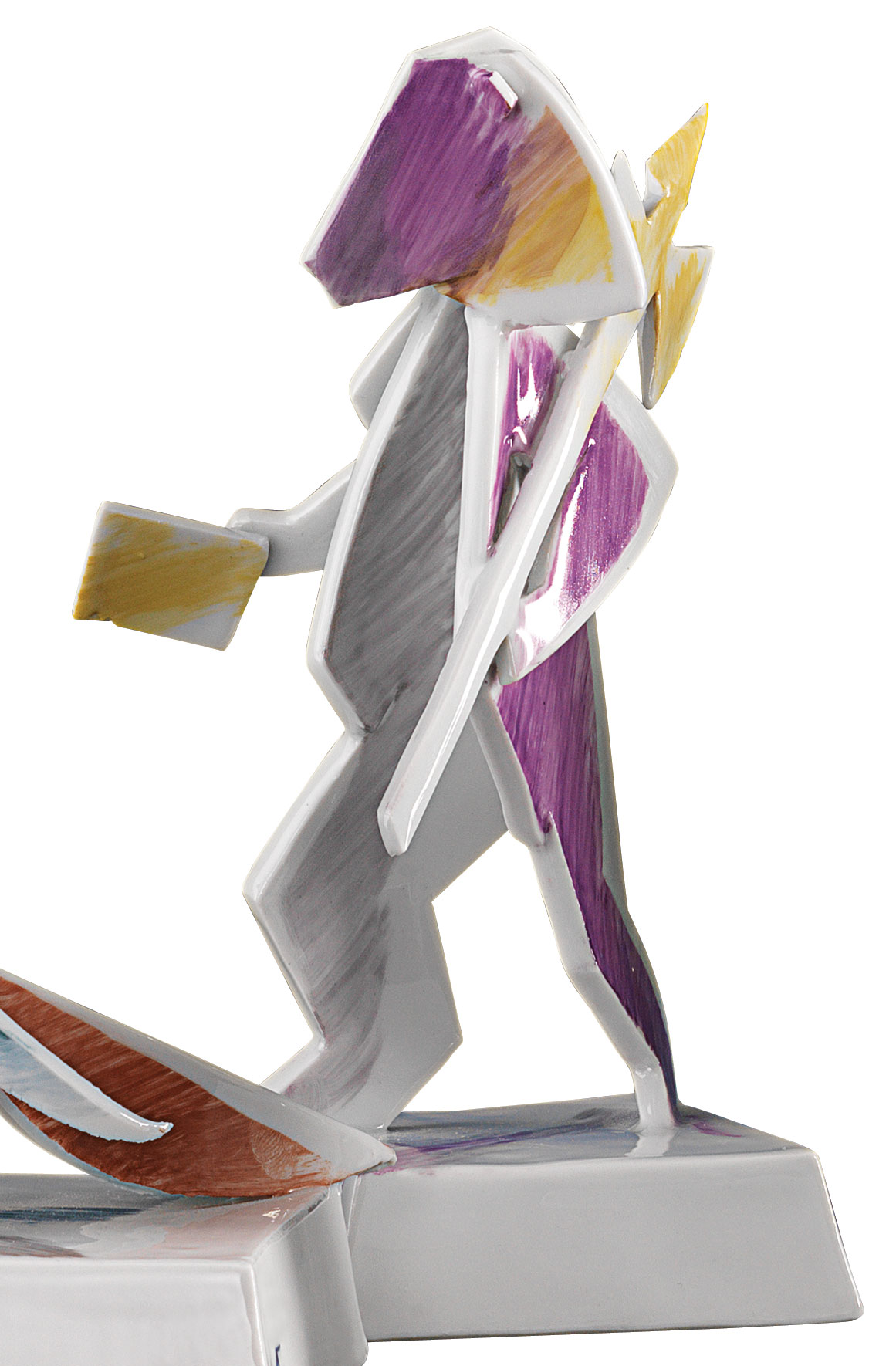€290.00
Product number:
23905881945
Product information "Andreas Ehret: Porcelain sculpture 'Brown, the bear' - after Goethe"
The all-too-human in animal form: Goethe's 'Reineke Fuchs''To wisdom be converted / Soon everyone and shun evil, honour virtue! / This is the meaning of the song in which the poet / Mixes fable and truth, so that you may separate evil from good / And cherish wisdom, so that the buyers / Of this book may learn daily from the course of the world.'This is how Johann Wolfgang von Goethe's epic poem 'Reineke Fuchs' ends. It is an old story that was already being told in the Middle Ages. Goethe turns it into a world panopticon with human weaknesses and vanities cloaked in animal figures: There is the eponymous Reineke, who knows how to talk his way out of every situation with cunning and peasant cunning, there is the faithful and yet somewhat stupid badger Grimbart, there is the eternally hungry bear Braun and the wolf Isegrim, who, despite his superior strength, knows nothing to counter Reineke's cunning. And finally, there is Nobel the lion, who is actually quite noble but ultimately allows himself to be compromised by his greed (for gold) - they all have human, all too human traits. Meissen porcelain artist Andreas Ehret, born in 1959, has moulded them into an original porcelain series. 'Porcelain,' he says, 'is a charismatic material, a challenge to animate it, to question it by bringing conflict into the moulds. He has succeeded in doing this here - and so the buyers of these figures may also be 'taught by the course of the world every day'.sculpture 'Brown, the bear': size 18 x 9 x 8 cm (h/w/d), signed.
| Artist: | Andreas Ehret |
|---|


